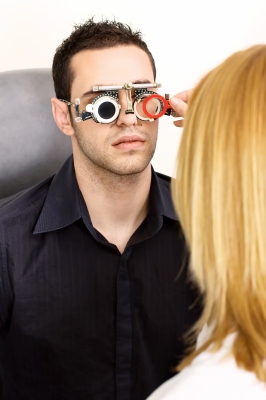
If you have trouble getting around at night, you are not alone. Many people experience this problem, but it doesn’t have to be this way.
Night blindness (nyctalopia), the inability to see well at night or in poor light, is not a disease. Generally speaking, night blindness is a symptom of an underlying condition, and VisionFirst can help you manage these symptoms.
Five causes for night blindness
There are multiple reasons why you might have trouble seeing in the dark:
1. Nearsightedness makes it difficult to see in the dark, particularly if your glasses or contacts are not strong enough. If this is the case, reach out to one of our optometrists for an eyeglass and contact fitting appointment.
2. Check your medications as some can cause temporary problems with vision. There are many medications that alter the size of your pupils or slow down the eye’s ability to adapt to various lighting conditions. Talk to one of our optometrists if you are concerned about how you medications are affecting your vision.
3. Cataracts may also affect your ability to see well in the night or in dimly-lit areas. As a cataract clouds the natural eye lens, less light can enter the eye, which means you will need even more light to see. Many with cataracts complain of difficulties driving at night. Surgery to remove the cataract can resolve this problem.
4. Nutritional deficiencies can also decrease your ability to see in the dark. Replenishing the deficiency can often help to restore your night vision.
5. Retinitis pigmentosa is a hereditary disease that causes a permanent deficit in night vision, affecting children and adults. This disease causes in the deterioration of the retina, which is the part of the eye that senses light. This disease can also cause general vision problems. Unfortunately, there is no cure for this disease, but there are lifestyle adjustments that can be made.
Mostly, night blindness is treatable. However, for diseases such as retinitis pigmentosa, there is no effective treatment. If your condition requires a lifestyle change, you may require alternative transportation or general assistance in your home. Additionally, you may want to carry an extra form of lighting with you such as a flashlight, so you can provide your own light source in the event you are not in an ambient setting.
Since many of these conditions do not have symptoms, it’s very important to keep your routine eye exams with your doctor. If you are experiencing a loss of nighttime vision, it is most likely treatable. Make an appointment at a VisionFirst location near you to see one of our experienced optometrists.
Image courtesy of marin at FreeDigitalPhotos.net
